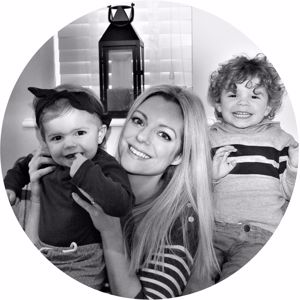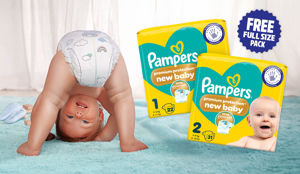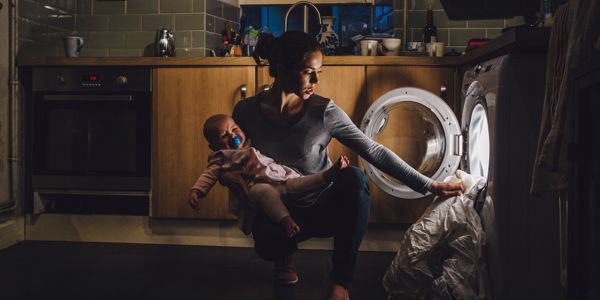Motherhood can be a naturally testing time, and the majority of parents will struggle with their mental health at some point or another after welcoming a child into their family.
Pregnancy and after birth leads to some huge hormonal changes within the female body, and it only takes a little something to be out of whack for the consequences to start showing themselves in the trickiest of ways!
Add in a massive dose of sleep deprivation, and it’s almost a perfect recipe for your mental health to go awry. Also, this isn’t something that only affects mothers too - dads can also suffer with PND after the birth of a child.
I am no stranger to mental health issues in motherhood. After the birth of my first child, I struggled with PTSD after a traumatic labour experience. The support I had received during the induction and labour process at the hospital was close to non-existent, which meant by the time I was ready to actually give birth (in a corridor, no less), I was forced to hold on and undergo a series of internal examinations and foetal monitoring for record-keeping purposes.
When I was finally allowed to push I was shouted at for ‘doing it wrong’ after I explained that I couldn’t only ‘push when there is a pain’ as the pain was constant. I ended up with a 3rd degree tear and spent hours in surgery separated from my baby.
For months I had flashbacks every time I closed my eyes, intrusive thoughts made their way into my daily life, and I was on high alert constantly - unable to sleep for fear my baby would stop breathing or something bad would happen.
I spent most of my second pregnancy struggling with anxiety after a previous miscarriage, and by the time my second child was 6 weeks old, I was deep in the throes of postnatal depression and postnatal anxiety.
I spent months having therapy, and it took years to feel myself again. I assumed I would never have another baby as I was so worried about becoming unwell again and putting my family in that position, but after focusing on my own well-being and putting protective factors in place to give me the best chance of a positive outcome and not getting PND during pregnancy again, I am now enjoying the early stages of life with my third child.
How do I balance my mental health with motherhood?
Zero Fomo
When I had my first child I did ALL the baby groups, all the classes, the mummy meet ups, and the coffee mornings. I didn’t want to miss out, and I didn’t want my baby to miss out.
Now, I am much more confident in the knowledge that my baby’s most important early experience is building a strong bond with their primary carer, and if I’m exhausted after a sleepless night, then it's ok to snuggle on the sofa rather than go to soft play or music-making sessions.
Slow Down
There is something peaceful about following your baby’s natural rhythm and going with the flow rather than clock-watching, trying to schedule naps and planning your life around sleeps and feeds. These days I let my baby sleep when they are tired…even if that is different to yesterday or doesn’t fit with plans I made next week.
Get Help With The School Runs If You Can
Sleep deprivation is a huge trigger for poor mental health. My second baby used to need to sleep as I left for the school drop off and pick up. This time around, my husband tries to do the morning drop-off before work as much as he can, meaning much less rush and stress for me in the morning. I notice a big difference in how I feel on the days when he can’t help. Try to be a team.
Try To Do Something For Yourself
Whether it's going out to a yoga class or, like me, doing a youtube pilates video at home, time for yourself is important. Why not take up journaling or something creative so that you have a sense of achievement outside of being a parent?
Spend Time With Friends
It doesn’t have to be every day, but try to arrange to speak to or see a friend at least once a week for a reset and some happy vibes! One on one is usually better for your overall well-being than big group activities too.
Prioritise Rest
I cannot stress this enough. Things will go downhill so quickly if you are exhausted. Leave the cleaning, the washing, the cooking, if you’re tired – rest. Nothing else.






